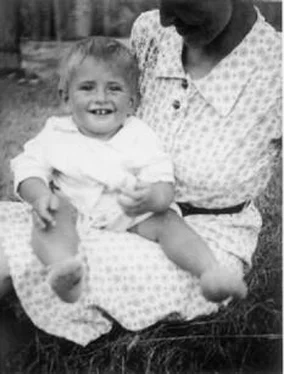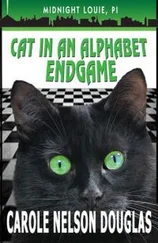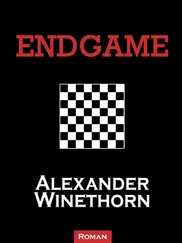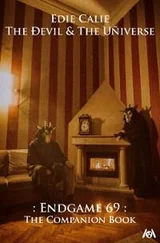
October 1956
Scattering fallen leaves as he rushed down the tree-lined street, thirteen-year-old Bobby vaulted up the red-carpeted stairs of the Marshall Chess Club two steps at a time and entered the Great Hall. It was not his first visit. Indeed, he’d already begun making frequent visits to the Marshall, New York’s other major chess club, where he enjoyed a heady feeling of being where he belonged, of possibly writing his own page into chess history.
The club—which was located on Tenth Street, between Fifth and Sixth avenues, one of Manhattan’s most attractive neighborhoods—had been quartered in this venerable brownstone (built in 1832) since 1931, when a group of wealthy patrons, including one of the Roosevelts, bought the building so that their beloved Frank J. Marshall, the reigning U.S. Champion, who would hold the title for twenty-seven years, would always have a place to live with his family and to play, teach, and conduct tournaments. Walking down the street with its rows of stately brownstones festooned with window boxes of flowers, and a private boarding stable on the same block, Bobby could have easily felt he was transported back to the Gas Light or Silk Stocking era of the nineteenth century.
Most of the world’s most renowned masters had visited the club—it was steeped in the echoes of legendary games, epic battles, hard-fought victories, and heartfelt defeats. Indeed, its only peer in the United States was the Manhattan Chess Club, forty-nine blocks to the north. In team matches, the Manhattan usually, but not always, came out on top.
Looking somewhat like a British officers’ club, the Marshall was wood-paneled, with plush burgundy velvet curtains, several fireplaces, and oak tables fitted with brass lamps. It was at this club that Cuba’s brilliant José Raúl Capablanca gave his last exhibition, where World Champion Alexander Alekhine visited and played speed chess, where many of the most gifted international grandmasters gave, and continue to give, theoretical lectures. Artist Marcel Duchamp lived directly across the street and was an active member of the club, and became a great fan of Bobby’s. The Nobel Prize winner Sinclair Lewis took lessons there. If a motion picture location scout were searching for an idealized chess club, the Marshall might be his pick.
Certainly, there was a sense of decorum that permeated the club, even when it came to dress. Bobby’s habitual mufti of T-shirt, wrinkled pants, and sneakers was considered an outrage by Caroline Marshall, Frank Marshall’s widow and the long-standing manager of the club, and on several occasions she informed him of his sartorial indiscretion, once even threatening to bar him from the premises if he didn’t dress more appropriately. Bobby ignored her.
He was at the Marshall that night in October to play in the seventh round of an invitational tournament, the Rosenwald Memorial, named for its sponsor, Lessing J. Rosenwald, the former chairman of Sears Roebuck who was an important art collector and chess patron. The invitation came as a result of Bobby’s having won the U.S. Junior Championship three months earlier, and the Rosenwald was the first important invitational and adult all-masters tournament of his career. The other eleven players were considered some of the finest and highest rated in the United States, and the club members were excited by the event. Bobby’s opponent that night was the urbane college professor Donald Byrne, an international master, former U.S. Open Champion, and a fiercely aggressive player. Dark-haired, elegant in speech and dress, the twenty-five-year-old Byrne invariably held a cigarette between two fingers, his hand high in the air, his elbow resting on the table, in a pose that gave him an aristocratic demeanor.
Regina accompanied Bobby to the club, but as soon as he began to play she left to browse at the nearby Strand Bookstore, whose shelves contained millions of used books. She knew it would probably be hours before Bobby’s game would be over and she’d have to return.
To that point Bobby hadn’t won a game in the tournament, but he’d drawn three, and he seemed to be getting stronger each round, learning from the other masters as he played. In chess tournaments, contestants are not only assigned opponents, they’re also given, for each round, a color: black or white. Where possible, the tournament director alternates the colors, so that a player will play with the white pieces in one game and with the black in the next. Since white always moves first, having that color can provide a player with a distinct advantage in that he can make immediate headway on a preferred strategy. Alas, against Byrne, Bobby was assigned the black pieces.
Having studied Byrne’s past games in chess books and magazines, Bobby knew something of his opponent’s style and the strategies he frequently used. So Bobby decided to use an atypical approach—one unusual for Byrne to face and for Bobby to try. He played what was known as the Gruenfeld Defense.
Bobby knew the basics of the opening but hadn’t yet mastered all of its intricacies. The point was to allow white, his opponent, to occupy the center squares, making the pieces a clear target that would be vulnerable to Bobby’s attack. It wasn’t a classical way to approach the game, and it leads to a very different configuration as the game progresses; but Bobby took the chance.
Because he hadn’t memorized the sequence of moves, Bobby had to figure out what to do each time it was his turn, and he became time-troubled early on. Increasingly nervous, he bit his nails, toyed with his hair, sat on his folded legs, then kneeled on the chair, put his elbow on the table, and rested his chin first on one hand and then on the other. Byrne had just defeated Samuel Reshevsky, the strongest American grandmaster in the tournament, and his chess ability was not to be disrespected. Bobby wasn’t panicked, but he was decidedly uneasy.
Kibitzers began gathering around his board, and each time Bobby had to get up to visit the tiny restroom in the back of the club, he almost had to fight his way through the scrum. It interfered with his concentration: Normally, an ongoing game resonated within him even if he left the table. “The onlookers were invited to sit right next to you and if you asked them to leave or be quiet they were highly insulted,” Bobby recalled. He also noted that the warm Indian summer weather and the press of a large number of people made the room stifling. Bobby’s complaints were heard by the club’s organizers, but too late to do anything about it that night. The next summer the Marshall put in its first air conditioner.
Despite his discomfort, Bobby plunged ahead with the game. Surprisingly, after only eleven moves, he’d almost magically built a positional advantage. Then, suddenly, he moved his knight to a square where it could be snapped off by his opponent. “What is he doing? ” said someone to no one in particular. “Is this a blunder or a sacrifice?” As the onlookers scrutinized the position, Bobby’s ploy became obvious to all: Although not profound, it was cunning, perhaps ingenious, and even brilliant. Byrne dared not take the knight; though he would have won an important piece, ultimately it would have led to Bobby’s victory. The tournament referee described the electricity that Fischer’s audacious choice created: “A murmur went through the tournament room after this move, and the kibitzers thronged to Fischer’s table as fish to a hole in the ice.”
It was exactly the madding crowd that Bobby wished would stay afar. “I was aware of the importance of the game,” recalled Allen Kaufman, a master who was studying the game as Bobby played it. “It was a sensational game and everyone was riveted on it. It was extraordinary: The game and Bobby’s youth were an unbeatable combination.”
Читать дальше



![Антон Текшин - EndGame [СИ]](/books/394477/anton-tekshin-endgame-si-thumb.webp)









